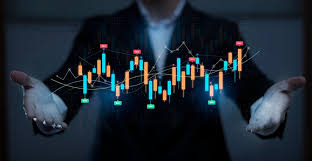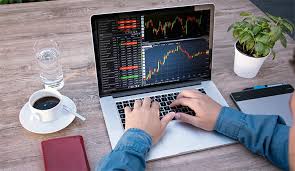
When entering the world of forex trading, one of the most critical decisions you will make is choosing the right broker. A reliable broker not only facilitates your trades but also provides the tools and resources needed for a successful trading experience. This is where platforms like trading brokers forex https://tradingplatform-hk.com/ come into play, offering a variety of services and features to assist traders at every level.
What is a Forex Broker?
A forex broker is a financial services company that provides traders access to the foreign exchange market. Brokers can be categorized into different types, primarily market makers or ECN (Electronic Communication Network) brokers. Market makers create a market for their traders by executing trades against their inventory, while ECN brokers connect traders with other market participants, providing transparent pricing and lower spreads.
Factors to Consider When Choosing a Forex Broker
Selecting the right forex broker involves various factors that can affect your trading experience. Here are some essential aspects to consider:
1. Regulation
Regulation is one of the most crucial factors to look into when choosing a forex broker. A regulated broker is subject to oversight by a governing body, which helps ensure that they operate in a transparent and fair manner. Different countries have different regulatory bodies, such as the FCA in the UK, ASIC in Australia, and CFTC in the USA. Always check if the broker is regulated by a reputable authority.
2. Trading Platform
The trading platform is where you will conduct your trades, so it’s essential to choose one that is user-friendly and equipped with the necessary tools and features. Popular platforms include MetaTrader 4 (MT4), MetaTrader 5 (MT5), and proprietary platforms offered by certain brokers. Ensure that the platform provides charts, technical indicators, and can execute trades with minimal latency.
3. Account Types
Forex brokers typically offer various account types catering to different kinds of traders. As a beginner, you might want to start with a demo account to practice trading without risking real money. Look for brokers that provide multiple account options (such as standard, mini, and micro accounts) to find one that suits your trading style and capital.
4. Spreads and Commissions
The cost of trading in forex includes spreads (the difference between the bid and ask price) and commissions. While many brokers offer zero-commission trading, they may have wider spreads. On the other hand, brokers that charge commissions may provide tighter spreads. It is vital to understand the total cost of trading, including how fees may impact your profitability.
5. Leverage
Forex trading often involves using leverage, which allows traders to control larger positions with smaller amounts of capital. However, higher leverage also means higher risk. Make sure to understand the leverage offered by the broker and how it can impact your trading strategy. It is wise to choose a broker that provides flexible leverage options suited to your risk tolerance.

6. Customer Support
A broker’s customer support can make or break your trading experience. Ensure that responsive support is available via multiple channels such as live chat, email, and phone. Test their responsiveness and knowledge base during the account-opening phase to ensure assistance when you need it.
7. Educational Resources and Tools
For both beginner and experienced traders, having access to educational resources can dramatically improve trading skills. Look for brokers that offer tutorials, webinars, market analysis, and economies calendars. Educational tools can help you stay informed about market trends and enhance your trading strategies.
How to Get Started with a Forex Broker
Once you’ve chosen a broker that fits your needs, the process of getting started typically involves the following steps:
1. Account Opening
Visit the broker’s website and complete the account opening process. This usually involves entering personal information and verifying your identity with documentation.
2. Fund Your Account
After successfully opening your account, you will need to deposit funds. Most brokers offer various deposit methods, such as bank transfers, credit/debit cards, and e-wallets. Be sure to check for any deposit fees.
3. Download the Trading Platform
Once your account is funded, download the trading platform provided by your broker. Familiarize yourself with its features and tools through tutorials or guided practice.
4. Start Trading
Begin by placing small trades on different currency pairs to get a feel for the market. Gradually increase your trade size as you gain confidence and improve your strategy.
Conclusion
Choosing the right forex trading broker can have a significant impact on your trading success. Consider factors such as regulation, trading platform, account types, spreads, leverage, customer support, and educational resources to make an informed decision. With the right broker at your side, you’ll be better positioned to navigate the complexities of the forex market and achieve your financial goals.
